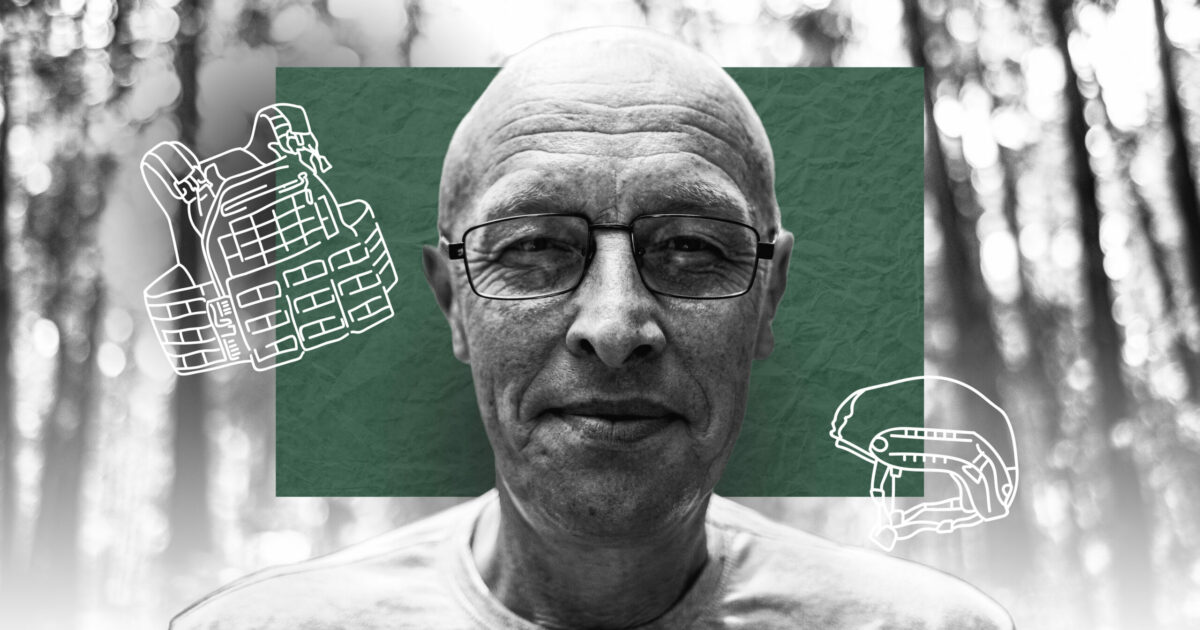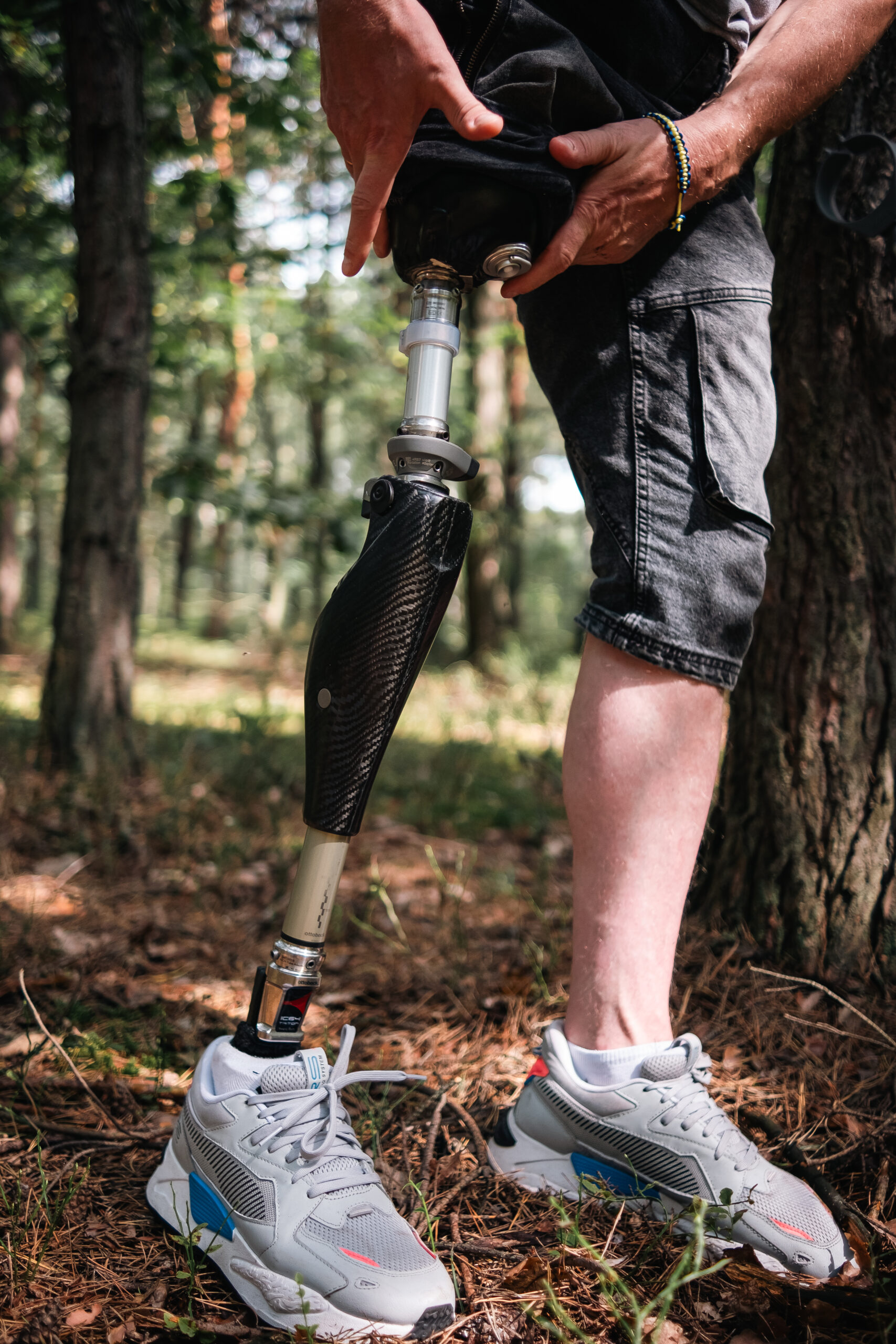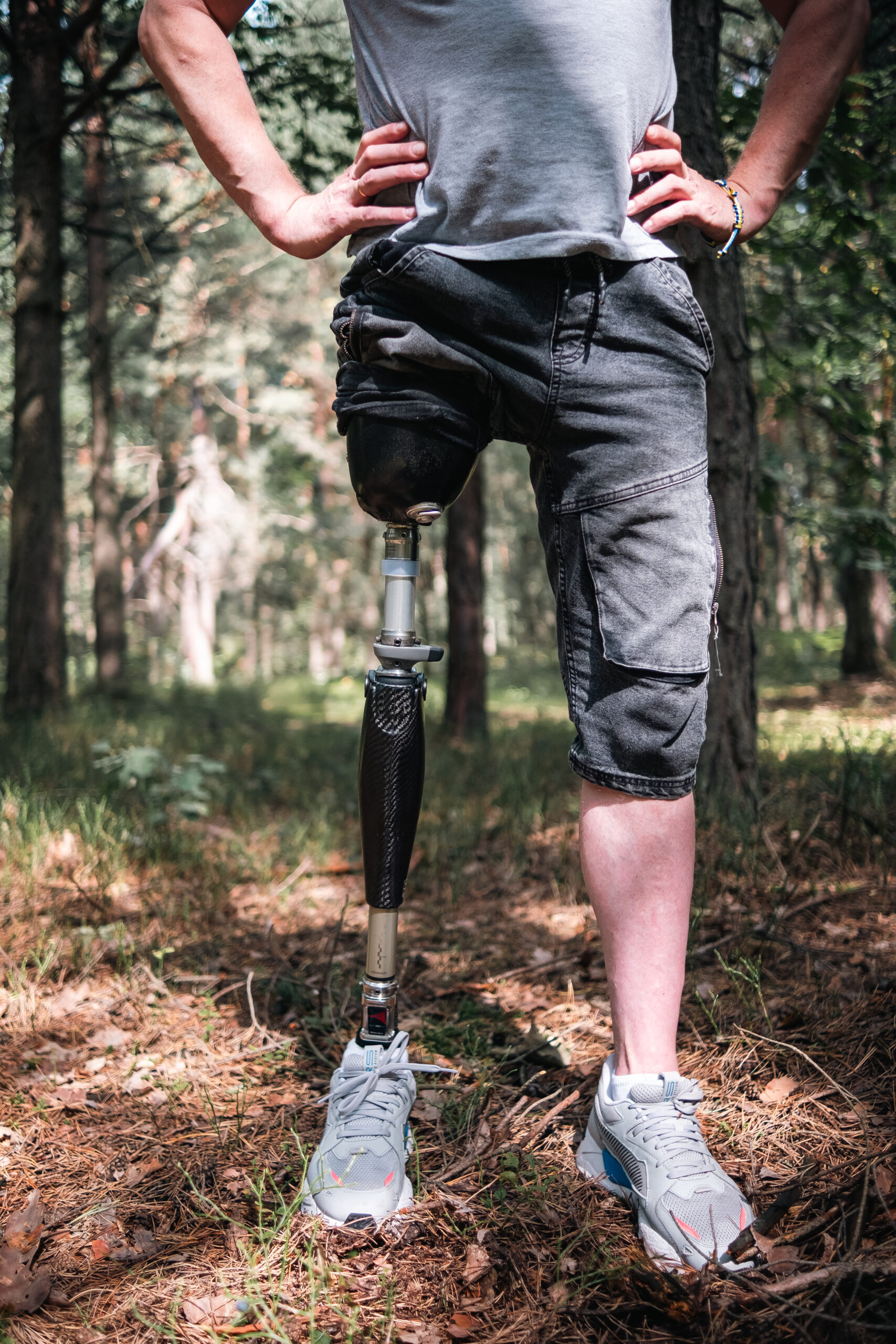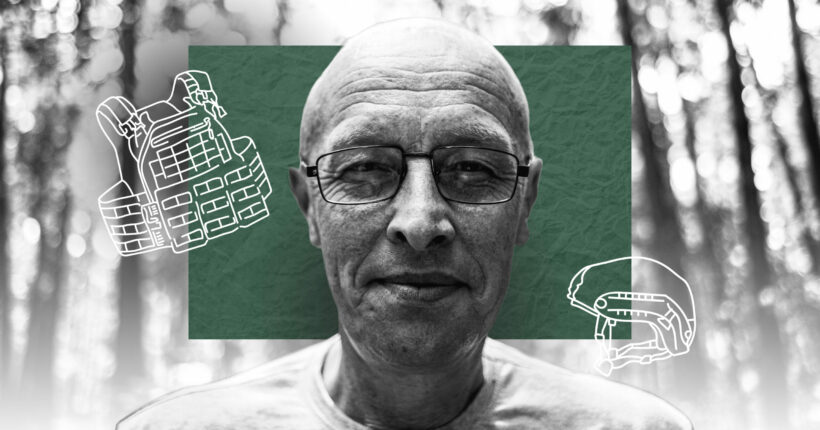
"Everything was shooting at us"
"Whether you want it or not, you have to go. There were no options. Moreover, investors were afraid to invest money in the joint Ukrainian-Bulgarian firm, so the business was put on hold. In the winter of 2015, I was already in the army," says the soldier.
Debelyi's brigade fought in the Donetsk area in Mariupol, Krasnohorivka, Toretsk, and Volnovakha. The contract expired at the beginning of January 2022, and a little more than a month later, a full-scale invasion of Russia began. On February 24, Debelyi again joined the army in the ranks of his native brigade. A full-scale invasion was very different from what the military faced before 2022.
"Everything was shooting at us, except submarines, for sure. There was no aviation or strong artillery during the anti-terrorist operation (ATO) in the east of Ukraine, and we fought against an irregular army. In 2022, the situation was completely different, and professional soldiers were advancing all over the country," says Debelyi.
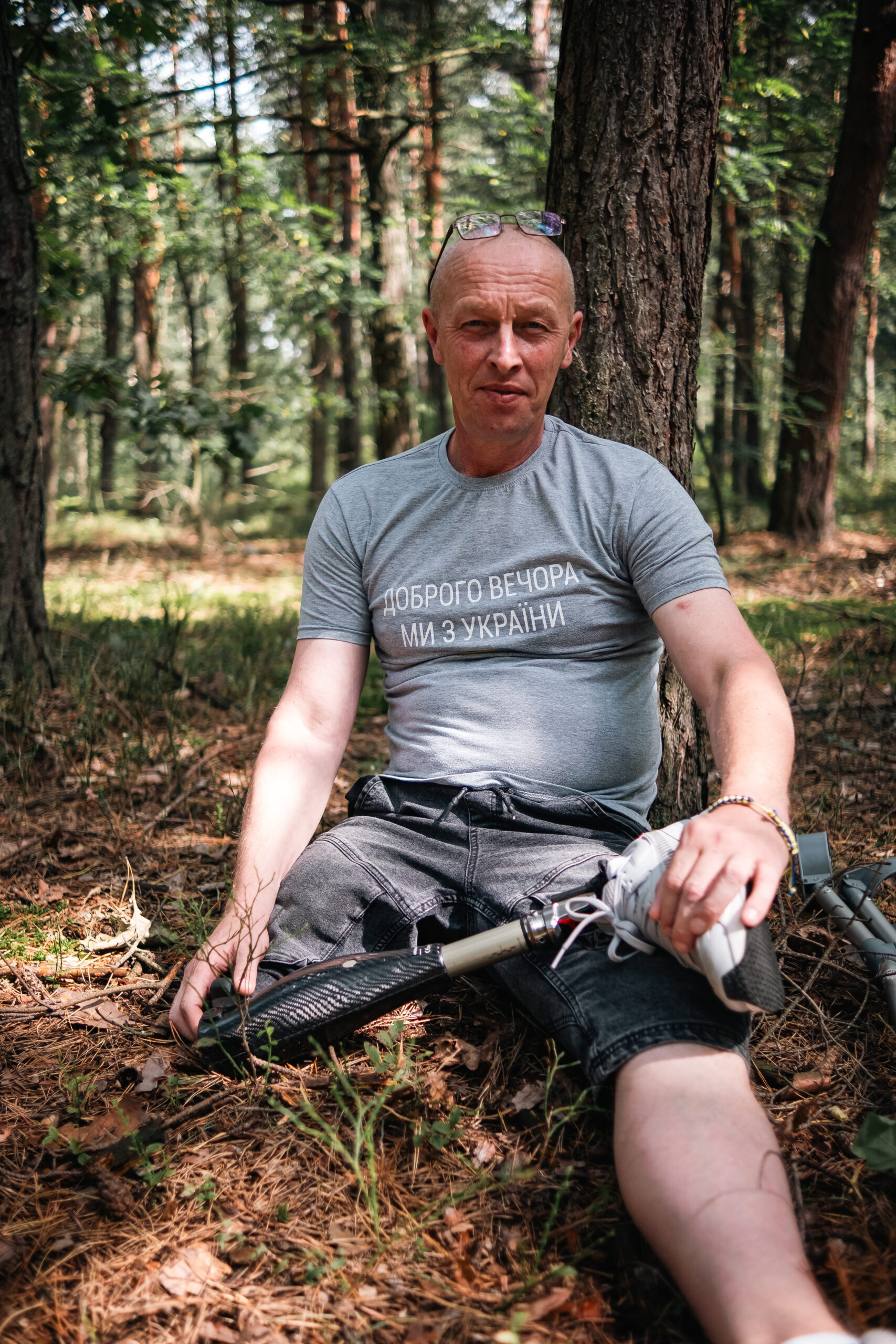
The soldier says that at the front, together with his comrades, he came under fire from almost all types of Russian weapons.
In March 2022, the soldier and his comrades were in the Zaporizhzhia region. He recalls how, on the 18th, he and his comrades moved to a new location and settled in the area.
During lunch, the soldiers went out to check what was located next to them, and nothing foreshadowed trouble. Moving through the mined territory, they blew themselves up on an anti-personnel mine. Debelyi's friend was concussed but managed to help his comrade by putting on a tourniquet and driving him to the hospital in Orikhiv. Then there was Zaporizhzhia, but Debelyi does not remember it, as he was put into an artificial coma. He regained consciousness only in Dnipro, where a soldier's leg was amputated. Then began a long road to recovery.
"I will not grow a new leg"
After Dnipro, Debelyi has been recovering in medical facilities in Vinnytsia, Mukachevo, and now in the Lviv region, where he is in a rehabilitation center. All this time, family and friends were always around. Thanks to them, he held on, says the soldier. "It would be more difficult without them. My children and wife treated my injury normally. My grandson even liked it when I was in the wheelchair. He rides a bicycle in front, and I ride a wheelchair in the back."
Half a year ago, the soldier was given a Ukrainian-made prosthesis at the hospital on Friday evening, and already on Saturday morning, he was already walking in the corridor — on crutches, but he was walking.
"Getting used to a prosthesis is impossible, but a new leg will not grow. You have to live with what you have. The main thing is to learn how to make the prosthesis function properly," says Debelyi.
Nevertheless, in half a year, Debelyi got used to the prosthesis. He drives, can go to nature to grill barbecue, or repair something at home. In July, the soldier received a new prosthesis, already made in Estonia, thanks to the Government of Estonia, local doctors, and the BGV Charitable Foundation.
"It would have been possible to collect money for such a prosthesis through donations, but I didn't want to go around and ask people. My prosthetist says there is no cooler model or analog. For example, falling on this prosthesis is much more difficult than on others. There are tons of features, but I haven't used them yet. By weight, the new prosthesis is heavier than my old one, so I'm just getting used to it. The problem is that I have a high amputation, a small stump, and a lot of weight. But the doctor says I will be fine thanks to training with the new prosthesis," Debelyi told Rubryka.
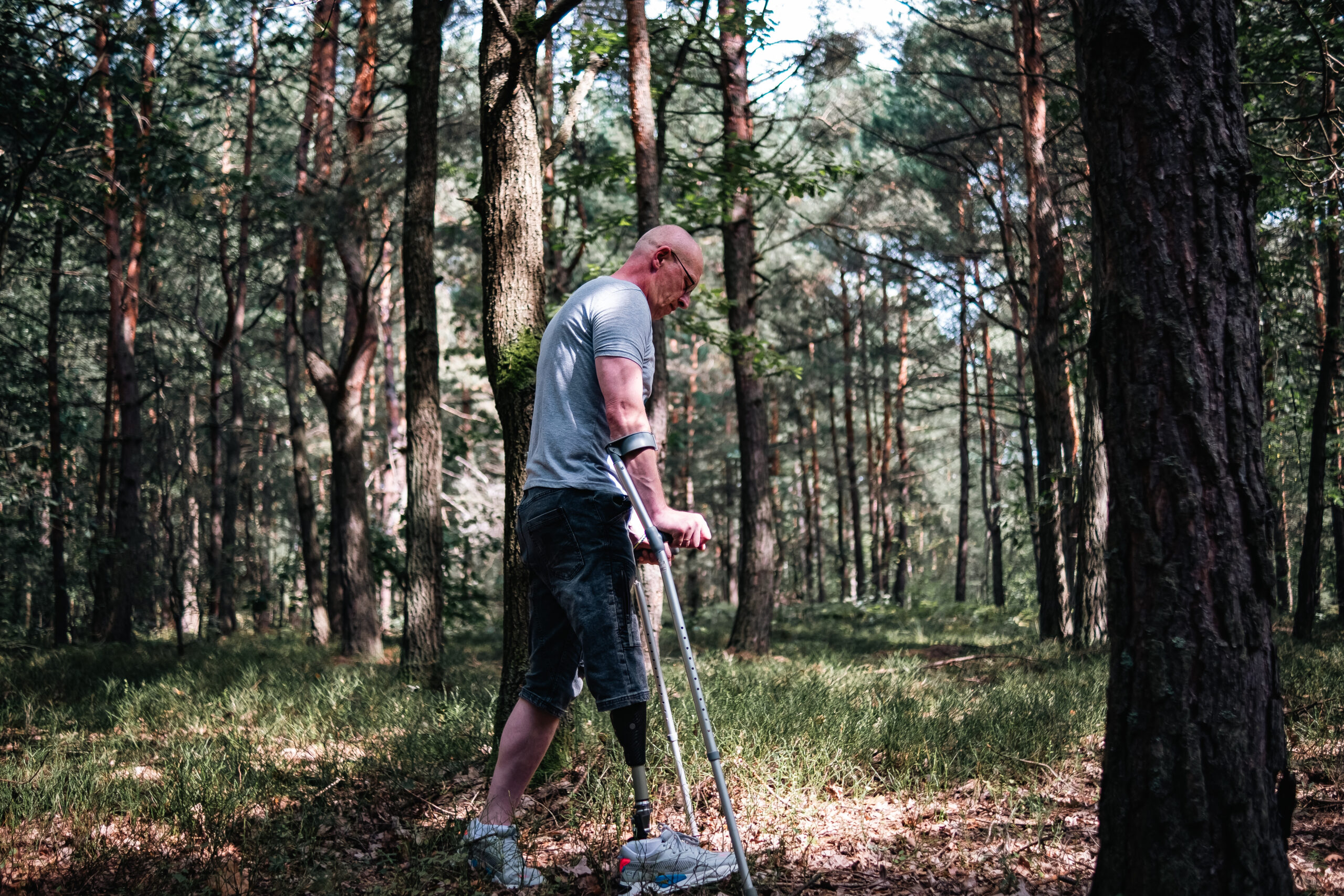
Mastering a new limb takes time, so for now Debelyi uses crutches.
Nowadays, the soldier's day is built around rehabilitation. There are five men in his ward. In the morning, after getting up, they go to the gym.
"We drink coffee, rest, then go for a walk again. Pure training, and that's it. Sometimes, we go for a walk in the city, and someone can get their prosthesis adjusted — that's how the days and weeks pass."
Whenever possible, Debelyi goes home to Mukachevo. Soon, he hopes to pass the military medical board assessment: "I hope to return to the army, but not to my brigade. They don't take us like that there anymore. I will look for something calm."
The series of materials Faces of Strength was created within the framework of the special project of the Ukrainian Charitable Foundation BGV and solutions media Rubryka as a way to express gratitude to the Republic of Estonia for the systematic support and with great hope for the continuation of the program on prosthetics of Ukrainians. You can support the prosthetics of Ukrainian defenders by clicking HERE. Your contribution will go towards covering logistics costs for program participants.
Newsletter
Digest of the most interesting news: just about the main thing


